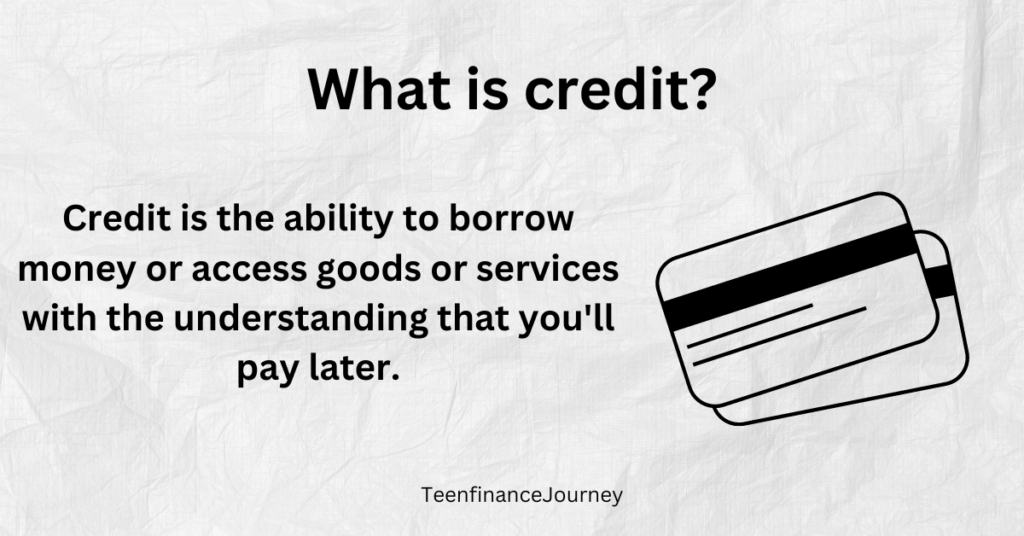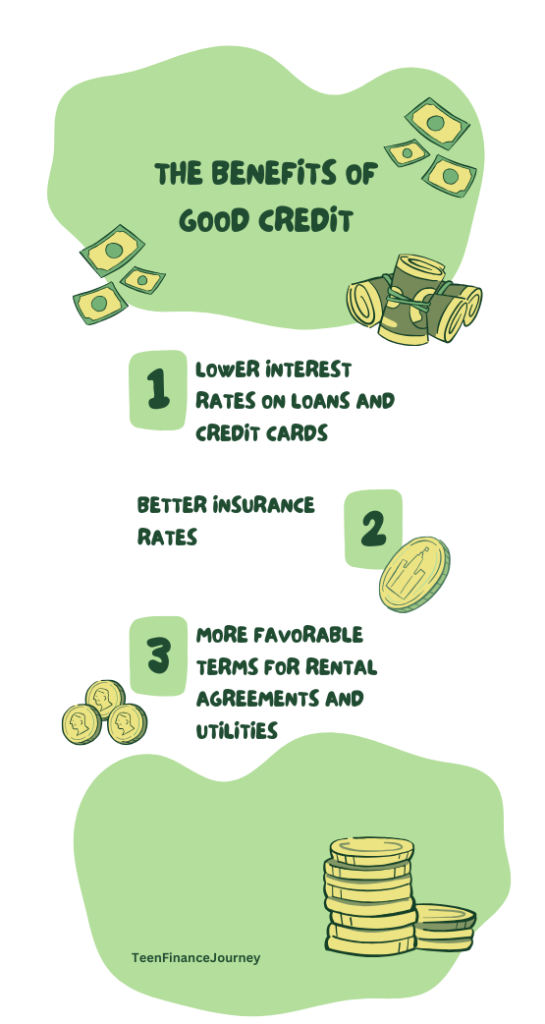Welcome to Teen Finance Journey, where we empower teens like you to build a strong financial future. Today, we dive into a crucial topic: credit. Understanding credit early on not only opens doors but sets you on the path to financial independence. Let’s master credit together!
1. What is Credit and Why is it Important?

Credit is more than just borrowing money; it’s a key financial tool that impacts your life in various ways. From getting a car loan to renting an apartment, a good credit score can make all the difference.
Action Step: Dive deeper into the basics of credit and its impact on your financial goals. Understanding its importance early on will motivate you to manage it wisely.
2. Understanding Credit Scores
Your credit score is a numeric representation of your creditworthiness. It’s based on factors like payment history, credit utilization, and length of credit history.
Action Step: Check your credit score regularly through free services to stay informed about your financial health.
3. Starting Early: Becoming an Authorized User

One of the easiest ways to build credit as a teen is by becoming an authorized user on a parent’s credit card. This allows you to benefit from their positive credit history.
Action Step: Approach your parents about becoming an authorized user on their credit card. Ensure they have a good payment history and low credit utilization.
4. Opening a Student Credit Card
If you’re 18 or older with a source of income, consider applying for a student credit card. These cards have lower limits and are designed to help young adults build credit responsibly.
Action Step: Research student credit cards that offer favorable terms and benefits. Use it for small, regular expenses and pay off the balance in full each month.
5. Managing Credit Responsibly
Responsible credit management includes making timely payments, keeping credit utilization low, and monitoring your credit report for errors.
Action Step: Set up automatic payments or reminders to ensure you never miss a payment. Aim to keep your credit utilization below 30% of your credit limit.
6. Avoiding Common Credit Mistakes
Learn from common credit mistakes such as missing payments or maxing out credit cards. Building good credit habits takes time and consistency.
Action Step: Educate yourself about common credit pitfalls and strategies to avoid them.
7. The Benefits of Good Credit

Good credit opens doors to lower interest rates on loans, better insurance rates, and more. Understand the benefits and how they align with your financial goals.
Action Step: List the benefits of having good credit and how they can support your future financial aspirations.
Conclusion
Mastering credit isn’t just about numbers; it’s about securing your financial future. Start early, build wisely, and reap the rewards of financial independence.
Join our community at Teen Finance Journey for more tips and resources on personal finance. Subscribe to our newsletter for the latest insights and strategies to master your money!


Pingback: The Ultimate Guide to Investing: Building Wealth for Teens and Young Adults - Teen Finance Journey
Pingback: The Ultimate Guide to Saving Money: Smart Tips for Teens and Young Adults - Teen Finance Journey
Pingback: 5 Essential Financial Habits Every Teen Should Adopt Now - Teen Finance Journey
Pingback: The Ultimate Guide to Building Multiple Income Streams as a Teen - Teen Finance Journey
Pingback: Boost Your Wealth: Proven Investment Strategies for Financial Growth - Teen Finance Journey
Pingback: Discover the Path to Wealth: A Proven Guide to Passive Income - Teen Finance Journey
Pingback: The Ultimate Guide to Financial Goal Setting for Beginners - Teen Finance Journey